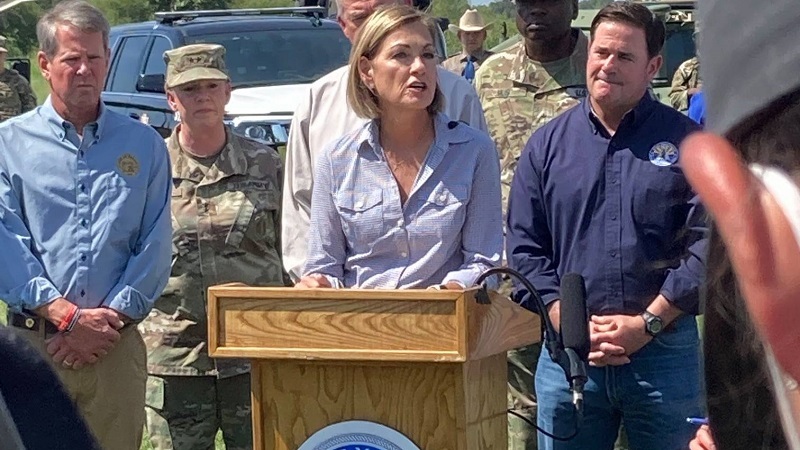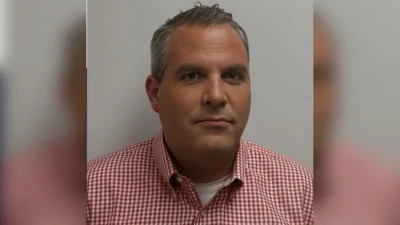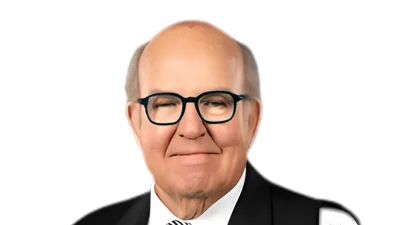Iowa Gov. Kim Reynolds during a news conference in October | facebook.com/IAGovernor/
Iowa Gov. Kim Reynolds during a news conference in October | facebook.com/IAGovernor/
Iowa Gov. Kim Reynolds is pinning her hopes on the U.S. Supreme Court to overturn a lower court's split decision Dec.17 to reinstate President Joe Biden administration's nationwide vaccine-or-test mandate for large employers.
In her statement issued the day after the 6th U.S. Circuit Court of Appeals' decision to allow the mandate for businesses of 100 employees or more, Reynolds said an appeal to the nation's highest court was the next step.
"The state has immediately asked the Supreme Court to stop this mandate," Reynolds said in her Saturday, Dec. 18, statement. "I will not stop fighting for Iowans and their personal freedoms and individual liberties."
Reynolds said she was "very disappointed" with the 6th Circuit's decision and that it came at a very bad time.
"We are in the height of a workforce shortage and supply chain crisis, and I have no doubt these issues are only going to be compounded by this poor decision," Reynolds said.
The Des Moines Register reported the mandate would apply to about 84 million workers across the country and to more than 2,200 Iowa businesses employing more than 923,000.
In its 2-1 majority decision written by Judge Julia Smith Gibbons, the 6th Circuit overruled the decision of a federal judge in a separate court to pause the mandate nationwide. The mandate issued by the U.S. Occupational Safety and Health Administration had been expected to go into effect Jan. 4.
Republican state attorneys general, conservative groups and many other plaintiffs in the case, RNC v. OSHA, argued in their appeal to the 6th Circuit that OSHA has no authority to make emergency rules. Plaintiffs also maintained that COVID-19 is a general health risk not unique in workplaces.
Gibbons, in her opinion for the majority, disagreed and pointed to "longstanding precedent" in prior that "upheld OSHA's authority to regulate hazards that co-exist in the workplace and in society but are at heightened risk in the workplace." Those cases support OSHA’s authority protect against health hazards in and out of the workplace, the opinion said.
"Given OSHA's clear and exercised authority to regulate viruses, OSHA necessarily has the authority to regulate infectious diseases that are not unique to the workplace," the opinion said. "Indeed, no virus — HIV, HBV, COVID-19 — is unique to the workplace and affects only workers. And courts have upheld OSHA's authority to regulate hazards that co-exist in the workplace and in society but are at heightened risk in the workplace."
U.S Circuit Judge Joan Louise Larsen dissented, citing a Supreme Court ruling in June that found agencies cannot "act unlawfully even in pursuit of desirable ends." Larsen also questioned whether Congress had authorized OSHA's emergency vaccine-or-test mandate.
"That question is the bread and butter of federal courts," Larsen said in her dissent. "And this case can be resolved using ordinary tools of statutory interpretation and bedrock principles of administrative law. These tell us that petitioners are likely to succeed on the merits, so I would stay OSHA's emergency rule pending final review."




 Alerts Sign-up
Alerts Sign-up